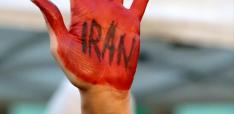Breaking Taboos? The IMF, World Bank, WTO Meet the New State Capitalism

Ilias Alami and Jack Taggart argue that major institutions of global economic governance have recently adapted their policies in response to the rise of the ‘new state capitalism’. But these accommodations, while significant, constitute a limited transformation: one that seeks to strategically balance out longstanding liberal prescriptions with the realities of state capitalism.
This year marks eighty years since representatives of 44 allied nations met at the Mount Washington Hotel in Bretton Woods. This conference resulted in the establishment of an institutional framework that would underpin economic relations in a post-war world. The system has evolved, not least with the creation of the WTO in 1995, but its core institutions and liberal principles have endured.
As the vanguards of market-oriented reforms worldwide, the Bretton Woods institutions (the IMF, World Bank, and WTO) have for over 40 years championed open capital accounts, trade liberalisation, and privatisation, acting as a revolutionary force for global economic integration. For some, this led to unprecedented global prosperity. For others, this contributed to extreme inequalities, the climate crisis, and reduced policy options for developing countries.
The world is rapidly changing, and with it, the policy agenda of the Bretton Woods institutions. The last decade or so has witnessed the rise of so-called ‘new state capitalism’ — where states take on greater roles as industrial policy actors, direct owners of capital, and investor-shareholders. Governments in both the global North and the global South currently experiment with a wide range of state-backed investment funds, policy banks, state enterprises, and other state-owned corporate entities, often without seeking the approval of the Bretton Woods institutions. They also increasingly mobilise various forms of techno-industrial policies, national development strategies, and trade and investment restrictions.
To be clear, this new state capitalism is not limited to China, Brazil, and other large emerging markets, as commonly argued in the business press and in Western policymaking circles. It is now a central feature of the world economy, visible in countries across the income spectrum and across political and ideological divides. How, then, have the IMF, World Bank, and WTO responded?
Significant changes are afoot. The IMF has recently softened its stance on capital controls, which are now understood as legitimate policy tools to prevent crises fuelled by ‘hot money’ flows and currency mismatches. The World Bank acknowledges the role that industrial policies, policy banks, and state-owned enterprises can play in the delivery of public services, crisis mitigation, and climate objectives. Both the IMF and the World Bank now (reluctantly) accept that governments will likely increasingly resort to trade and investment restrictions, whether for national security purposes, or as a result of pressures from their constituencies. The WTO, although in crisis, is displaying a significant degree of flexibility in applying legal exceptions to accommodate for the greater presence of state-owned entities in trade relations.
These are only a few examples of policy adjustments, which suggest a pivot from long-standing prescriptions. The Bretton Woods institutions are ostensibly evolving with the times, embracing formerly ‘taboo’ policies and muscular modalities of economic statecraft. Hence for the FT’s Martin Sandbu, this embrace of the activist state ‘amounts to a conversion that could put Saul of Tarsus to shame’.
Yet there is more than meets the eye. The IMF, World Bank, and WTO are facing their own crises, and scrambling to maintain legitimacy and authority in an era where their relevance is under question. The WTO continues to grapple with its Appellate Body crisis and its consequences on the enforceability of its rules. Southern countries, alongside the UN, lambast the IMF for its antiquated voting structures that reflect the post-1945 balance of power. The World Bank's bid to channel private finance to fund sustainable development increasingly sounds like an empty promise, as private investors appear uninterested in investing in developing nations. In this context, adapting policy prescriptions and reform agendas is a strategic necessity to renew sources of expert authority, maintain relevance and shape global rules in an age of enhanced state ownership and interventionism.
The latter are also perceived by the Bretton Woods institutions as posing significant risks for the global economy. The IMF worries that the emergence of unique structures of ownership and management blending state and private ownership complicates the assessment of government influence on business decisions, which may lead trade partners to adopt protectionist measures. The unchecked proliferation of state-owned corporate entities could also heighten the likelihood of inappropriate interventions and generate competitive imbalances in global markets. Overall, as IMF managing director Kristalina Georgieva warned ahead of the 2023 World Economic Forum Summit, this is ‘a dangerous slippery slope towards runaway geoeconomic fragmentation’.
Policy adjustment therefore aims to manage these risks. The World Bank and IMF’s championing of state ownership reform focuses on minimising market and competitive distortions, especially in transnational trade and investment relations. The hope is that by strengthening their commercial orientation and introducing strict financial discipline (with the injection of private capital and pricing reforms), state-owned corporate entities will be subject to market-like mechanisms, and perceived as ‘good global citizens’ by state and market actors. Also, the IMF's conditional acceptance of capital controls, reserved for extraordinary and short-lived scenarios, is tempered by its unwavering pledge to ensure ‘eventual capital account liberalisation’.
The support for enhanced state ownership and muscular state interventionism is therefore far from unconditional. Policy adjustments at the Bretton Woods institutions strategically balance out traditional liberal prescriptions with the realities of state capitalism. They aim to preserve authority and keep in check the expansion of state capitalism, ensuring that the latter remains embedded within a liberal global economic order. Far from opening more policy space for developing countries, this defensive move strives to safeguard existing ‘gains’ in global economic integration in a fragmented world, by absorbing and simultaneously policing emergent practices of state interventionism and ownership. Whether this defensive stance will be successful remains an open question, but it nevertheless reveals the extent of change in the institutional foundations of the world economy, one where state capitalism is here to stay.
Dr Ilias Alami is an Assistant Professor in the Political Economy of Development at the University of Cambridge.
Dr Jack Taggart is a Lecturer in International Political Economy at Queen’s University Belfast.
Photo by Mike van Schoonderwalt


